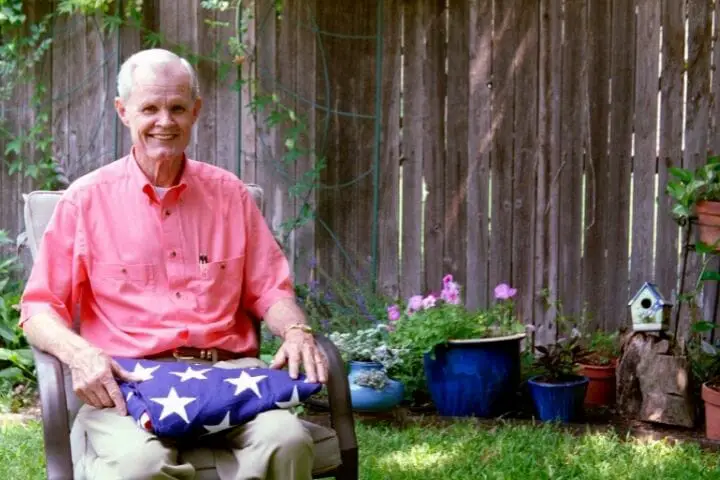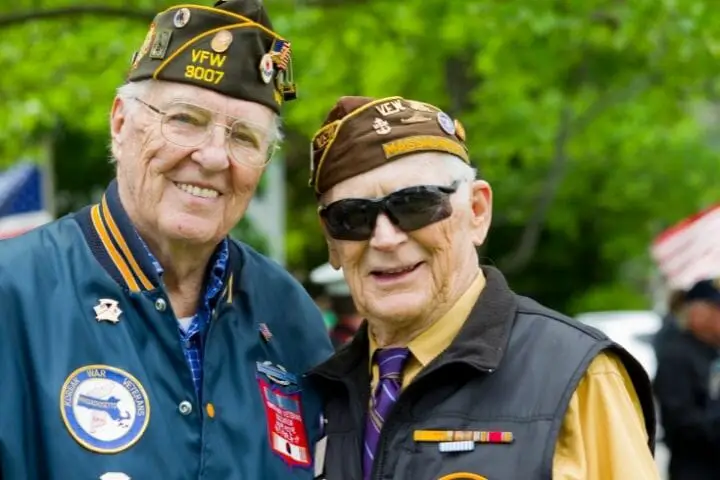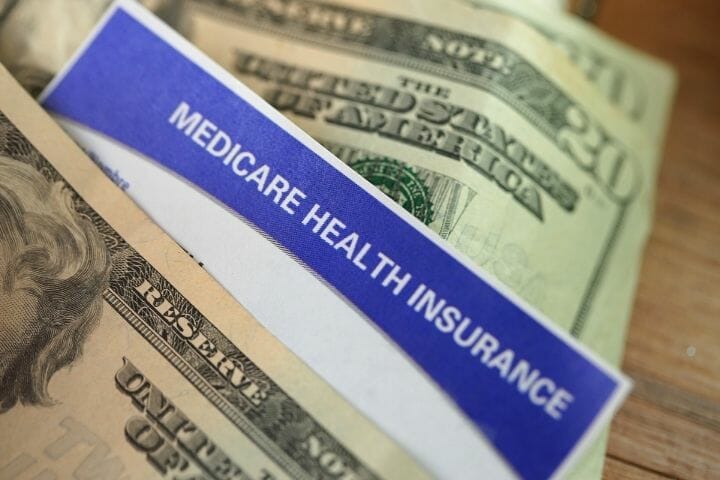If you do not qualify for TRICARE, you must go through this quick guide brought to you by the Respect Caregivers editorial team to understand CHAMPVA for caregivers to secure your older adult’s future.
As per a report (2015-16) by the U.S Department of Veterans Affairs, more than 18 million veterans (over the age of 65) live in America. While it can be challenging to round out the exact figure, they are entitled to receive the state benefits reserved for them.
From health care to housing and other long-term needs, the government has various programs designed to honor their invaluable services to the country.

One such benefit program is CHAMPVA that covers the cost of various health supplies, tools, and services, and this quick guide to CHAMPVA will make you understand the part it plays in the lives of caregivers of veterans.
What is CHAMPVA?
CHAMPVA, abbreviated for the Civilian Health and Medical Program of the Department of Veterans Affairs, focuses on the health benefits of veterans and shares the cost with eligible beneficiaries or caregivers.
Administered by the Chief Business Office Purchased Care, Denver, Colorado, this healthcare insurance ensures that everything from medical equipment, supplies, tools, nursing care, inpatient care, outpatient care, etc., is provided to the primary caregiver or beneficiaries of the veterans.
You might like to read: Make Memorial Day Meaningful for an Older Veteran
CHAMPVA and TRICARE
CHAMPVA is quite similar to TRICARE, another health care program for spouses and children of veterans, albeit there are a few differences between the two:
- CHAMPVA comes under the administration of VA, whereas the Department of Defense runs TRICARE.
- TRICARE focuses only on the spouses of veterans killed in battle, while CHAMPVA exclusively applies to the beneficiaries of disabled veterans.
- If you already have TRICARE insurance, you will automatically fail to qualify for CHAMPVA. You can only get one of the two.

Who is Eligible for CHAMPVA?
The first and foremost thing to check whether you are eligible for CHAMPVA benefits is to know if you are suitable for TRICARE – if you are, you cannot apply for CHAMPVA benefits.
Apart from not being eligible for TRICARE/CHAMPUS, you must also fall in one of the below categories –
- The spouse or child of a veteran who has been declared entirely and permanently disabled by a VR officer; or
- The surviving spouse or child of a veteran who died due to a VR-related disability; or
- The surviving spouse or child of a veteran, who at the time of their death was declared permanently and disabled related to VR service; or
- The spouse or child of a military member who died in the middle of duty (in this case, however, the caregiver is usually eligible for TRICARE)
Can Any Caregiver Get CHAMPVA Medical Benefits?
CHAMPVA is designated only for primary family caregivers without any health insurance. Thus, if the caregiver already has access to other health-related programs, including TRICARE, Medicare, and other commercial programs, they cannot ask for CHAMPVA benefits.
This program, thus, doesn’t even cover the family members of the veterans – only the primary family caregiver is the one who can apply to the CHAMPVA program.
If you belong to any of the above categories and are above the age of 65, check if you have a Medicare Part A and Medicare Part B entitlement, and submit a copy of the same at the time of your enrolment with CHAMPVA.
However, if the Veteran has been charged with poor conduct or was relieved of duties through a dishonorable discharge, VA will have the final call on whether or not to provide the benefits to the caregiver.

You might like to read: Caregiver Statistics: 1 in 5 Americans is a Caregiver!
What benefits are covered under CHAMPVA?
Now that you have learned all you need to about CHAMPVA, let’s focus on the possible benefits of the program for the beneficiaries. The great news is that CHAMPVA covers the costs of health and medical care quite comprehensively.
Even though it is the call of VR to choose whether specific tools and supplies should be covered under CHAMPVA, they make sure that all the necessary items are provided to the beneficiary.
Below are some of the essential tools and supplies that form a part of the ‘necessary’ list (the list doesn’t include all items) –
- Family planning and maternity
- Mental health services
- Transplant and other surgeries
- Impatient services
- Nursing care
- Hospice care
- Ambulatory surgery
- Ambulance transportation
- Outpatient service
- Durable medical equipment
- Medicine cost and coverage
- Doctor visits
- Lab and radiology services
- Prescriptions
What isn’t covered under CHAMPVA?
The following list of items/services are not included in the list of CHAMPVA –
- Routine tests and eye exams
- Acupuncture
- Chiropractic services
- Health club memberships
- Experimental procedures
- Investigative procedures
- Non-FDA approved drugs
- Dental care and more.
This guide will help you learn about the covered and non-covered services and supplies. You will automatically get this guide when you sign up for the benefits.

You might like to read: An Overview Of Government Benefits For The Disabled
How Much Does CHAMPVA Pay?
The allowable amount of CHAMPVA is more or less similar to TRICARE and MEDICARE. There are many cases where the families bear the healthcare and medical services costs, and CHAMPVA covers it in full later or adds deductions. The deductible rates of CHAMPVA are relatively low compared to other veterans’ health programs.
There are $50 deductibles for individuals and $100 for families every year in most cases. In cases of no deductibles, the health program pays around 75% of the cost of care, which means that you will have to pay 25 % of the total cost.
Please note that these deductibles are applicable when you primarily seek health benefits from CHAMPVA. You should visit Section 4 of the CHAMPVA guide to learn more about this.
Can a caregiver discontinue other health insurance(s) to receive CHAMPVA benefits?
You can, but you must strongly think through canceling your OHI plans since CHAMPVA does not cover many essential benefits and services, for instance, routine eye exams, chiropractic check-ups, and dental care.
Also, the benefits shall only be available to the primary caregiver in the family and no one else. Many programs do not require annual deductibles, which is usually not the case in CHAMPVA benefits. , many other health programs in the country thus, call for a lesser financial burden than CHAMPVA, so you must think well and good before canceling other health benefits.
Does CHAMPVA have a network of medical providers?
Unlike many other healthcare programs, CHAMPVA doesn’t have medical professionals. However, the caregiver can ask their provider to bill CHAMPVA directly.
How to Apply for CHAMPVA?
The process requires you to submit all the required and optional documents to the officials, and once submitted, you must wait for at least six weeks before contacting them again. Once the office receives your package, they issue an identification card for you, along with essential documents.
Your application is thoroughly reviewed, and in case a correction is needed, or any of the primary or optional documents are missing, it is returned, and one has to submit it again. The entire process takes about 6 to 8 weeks on average.
You might like to read: How to Apply for VA Health Care?

Required documents needed in the application process
To claim the benefits of the CHAMPVA program, you must submit the following required documents –
- A downloadable PDF form. Click here to download.
- Health insurance certification form. Click here to download.
- A copy of one’s Medicare card if the beneficiary is eligible for the same.
- If you are above 65 years of age, you must attach documentation from the SSA to confirm that you will not get Medicare or any other health benefits.
Optional documents needed in the application process
The addition of optional papers is a great way to speed up your application process. Send the copies of the following documents, and you will see what we mean –
- The certificate that exhibits the final VBA rating to certify that the Veteran is permanently disabled.
- You can request a copy of Certificate of Discharge from Active Duty, Veteran’s DD214, or if the Veteran was a Korea/WW2 veteran, the Report of Separation, from the National Archives. You will have to submit form 180 to get these documents
- Birth certificates of children. If you have adopted, then adoption papers shall be submitted.
- School certificates of children aged between 18 to 23.
- Legal marriage documents. If you are a widow or remarried and single again, you can give a copy of the termination of marriage document – a divorce decree. In case of the death of the spouse (remarried), add their death certificate as well for better and easy review.
You might like to read: How To Get Paid For Being A Caregiver?

You Have Applied, Now What?
As mentioned already, once you have completed documentation work and submitted the same, it takes about six weeks to hear from the officials, eight weeks, at the most. Once the application is reviewed, you will get your ID card. If a document is missing, it will be returned, and you will have to submit the same once again.
If you send the required and optional documents, the process will be quicker. However, submitting only the required documents will take about 3 to 8 months to complete since the officials have to connect with federal agencies to review the records and, thus, the application.
